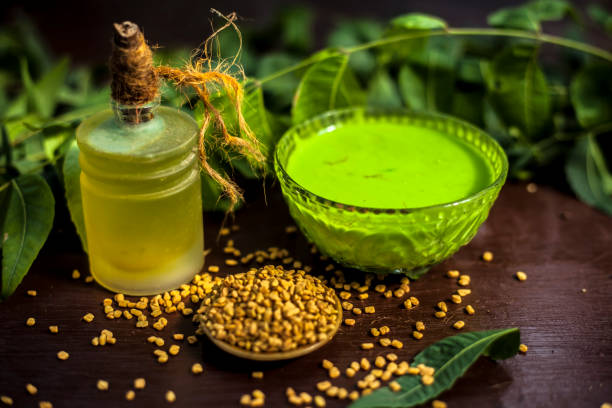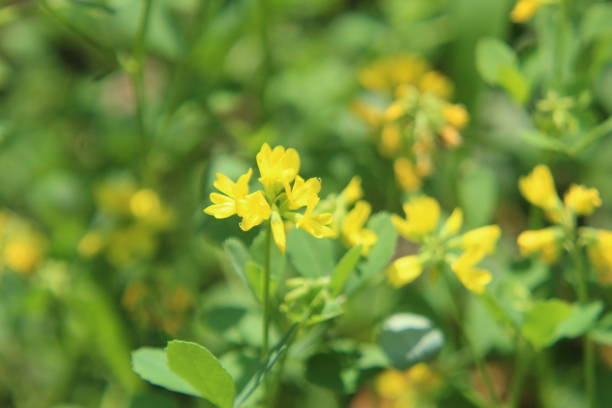Nutritious and medicinal at the same time

Name: Fenugreek Its name came from “Halba”, which is of hieroglyphic origin, and it has other names such as Freekeh, Darjraj, Qazifa, Hemayt, Mizqa, and Hayaja, and it is of the legume family.
If people knew its benefits, they would buy it for its weight in gold:
The Arabs have known fenugreek since ancient times, and it came in (Dictionary of Food and Plant Medicine) that Arab doctors were advised to cook the fenugreek with water to soften the throat, chest, and abdomen, and to relieve cough, shortness of breath, and asthma, and the fenugreek is widely used all over the world as a nutritious and as a medicine at the same time, and due to its benefits The doctors said, “If people knew its benefits, they would buy it for its weight in gold.”
Description of the plant:
Fenugreek is a small annual herbaceous plant, its height ranges between 20 to 60 centimeters, it has a hollow stem from which small stems are branched, each of which bears at the end three long serrated leaves, and from the base of the leaf stems appear small yellow flowers that turn into fruits in the form of curved horns the length of each The horn is about ten centimeters long, and it contains seeds that are somewhat similar in shape to the kidney, which are yellow-green, and there are two types of fenugreek; The regular municipal circuit of yellowish color and the red circuit, known as the horse rink, are very different.

Health benefits of the fenugreek :
- Controlling sugar levels
- Promote heart health and regulate cholesterol levels
- Promote digestive health
- Get rid of infections
- Reducing heartburn
- Helping lose weight

Benefits of the fenugreek for the face and skin:
It was found that the fenugreek has many benefits that may accrue to the skin of the face and skin in general, we mention some of them as follows:
1. Treatment of skin problems.
Such as: treating scars, boils, eczema, burns, and calming the skin, thanks to its antioxidant and vitamin C content, in addition to anti-inflammatory substances.
How to use: Wet a piece of cloth soaked in fenugreek seeds and wipe the face with it daily.
2. Maintain the freshness of the skin.
It was found that the fenugreek has a role in preventing the formation of blackheads, pimples and wrinkles, and maintaining the cleanliness and moisture of the skin as well.

How to use: Wash your face daily with boiled water of fenugreek seeds after it has cooled, or apply a paste of fresh fenugreek on your face for 20 minutes.


